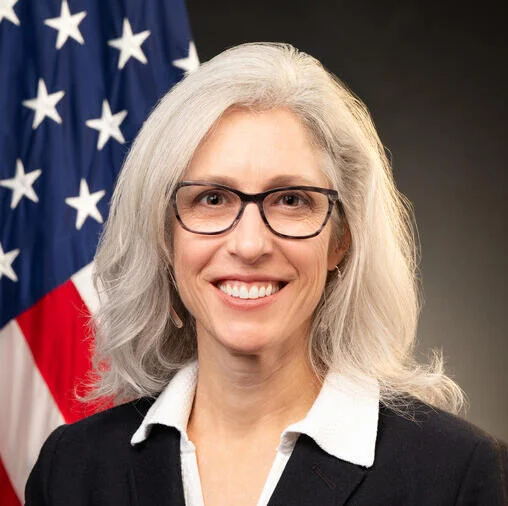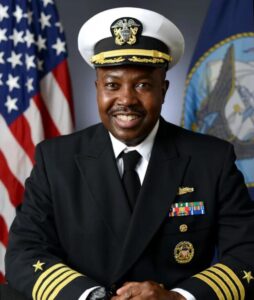Susan Monarez, CDC director, confirmed: Senate advances public health amid vaccine and fluoride scrutiny
Susan Monarez, CDC director, confirmed in a 51–47 Senate vote, marking a turning point for U.S. public health policy. With a Ph.D. in microbiology and immunology and two decades of federal leadership in biosecurity and health innovation, Monarez steps into a high-stakes role as head of the Centers for Disease Control and Prevention (CDC). Her confirmation arrives amid controversy: the agency faces massive staff and budget cuts, a dismantled vaccine advisory committee, and leadership by an anti‑vaccine Health Secretary, Robert F. Kennedy Jr., who has reshaped CDC norms. As director, Monarez pledges to restore scientific rigor, accountability, and trust to the institution she now leads.
Background and Historic Confirmation
Susan Patricia Coller Monarez became Acting Director of the CDC in January 2025, later nominated by President Donald Trump in March. She is the first CDC director under a 2023 law to require Senate confirmation and the first without a medical degree since 1953. Her confirmation vote, held on July 29, ended 51–47 along party lines, propelling her into one of the most critical public health positions in the U.S.

Monarez arrives at a turbulent time. The CDC has endured about a 40% budget reduction, staff resignations, and heightened scrutiny over health policy decisions driven by the Health Secretary. Her nomination followed the withdrawal of the prior pick, David Weldon, amid backlash over his vaccine skepticism.
Defining Public Health Philosophy
Monarez brings a systems-level public health strategy rather than a clinician’s individual-patient focus. Her background spans federal science policy, pandemic preparedness, biosecurity, and crisis management at agencies like ARPA‑H and OSTP, positioning her to drive large‑scale improvements. Experts argue that such leadership is essential to rebuild public trust in the CDC after years of internal crises and conflicting messages.
Her academic and professional path—from the University of Wisconsin‑Madison to Stanford and multiple federal roles—emphasizes innovation, data‑driven response, and health equity interventions. This orientation contrasts with prior CDC leaders and signals a renewed institutional focus.
Views on Vaccines
At her Senate confirmation hearing, Monarez made her stance clear:
- “Vaccines save lives.”
- “I have not seen a causal link between vaccines and autism.”
This position sharply diverges from Secretary Kennedy, who has espoused vaccine skepticism and recently overhauled the CDC’s Advisory Committee on Immunization Practices (ACIP), populating it with critics of routine immunization.
While avoiding public disagreement with Kennedy, Monarez emphasized her independence: “I will welcome the opportunity to share my opinions based on science and evidence,” — signaling potential resistance to anti-vaccine policy shifts.
Experts suggest her role could act as a safeguard to preserve long-established immunization programs, since no recommendation from ACIP becomes internal policy without the approval of the CDC director.
Take on Fluoride Controversy
Fluoride usage in drinking water has emerged as a divisive public health issue, especially after Utah and Florida banned fluoridation altogether. At the hearing, Monarez affirmed the value of fluoride for oral health and assured senators that drinking water fluoridation, for example, in Potomac, Maryland, remains safe for families.
Her testimony emphasized clarity and scientific reassurance regarding water safety—providing a counterweight to emerging politicized bans.
Navigating Relations with RFK Jr.
Despite Kennedy’s outspoken skepticism of vaccines and chronic disease initiatives, Monarez tactfully preserved professional language while reaffirming her scientific stance. She told senators she respects the secretary’s priorities but expects to maintain independent scientific judgment when required—for example, in decisions related to measles, vitamin A data claims, demographic vulnerability, or ethics vetting for ACIP members.
This fine balance—supportive yet independent—is central to her leadership potential. Public health onlookers note that the decisions she makes now will determine whether CDC policy remains evidence-based or drifts toward politicization.
Key Challenges Ahead
Monarez takes charge during a period of intense internal upheaval:
- Staff reductions and reorganization have affected crucial areas such as smoking prevention, lead poisoning programs, chronic disease, and pandemic readiness.
- Vaccine policy uncertainty looms large: The ACIP reshuffle and policy reversals (e.g., ending COVID vaccine recommendations for children and pregnant women) could undermine public confidence.
- CDC modernization: She has pledged to upgrade data infrastructure, improve outbreak detection via advanced technologies, and streamline rapid response systems across states.
- Restoring institutional credibility: Rebuilding public trust post-COVID and clarifying CDC messaging on highly politicized health decisions is now pivotal to agency relevance. The Washington Post
What’s at Stake
At stake are core CDC functions: vaccine rollout, disease tracking, water and environmental health, rural and maternal health services, research funding, and public credibility. Letting science lead, Monarez has the authority to uphold or alter historical precedents. A misstep or retreat would risk years of preventable disease, misinformation, and erosion of public confidence.
Public health advocates see her leadership as potentially transformative—but only if she asserts scientific independence from political pressures.
Conclusion
Susan Monarez, CDC director, confirmation arrives at a crossroads of institutional upheaval and policy uncertainty. With a systems‑focused lens, science‑backed positions on vaccines and fluoride, and a low‑profile but highly experienced background, she steps into a role fraught with challenges yet brimming with opportunity.
Her ability to modernize data systems, uphold independent decision‑making, and rebuild public trust will define the future of America’s flagship health agency. If executed well, Monarez could steer the CDC back to a place of evidence‑based authority and global credibility.
Subscribe to trusted news sites like USnewsSphere.com for continuous updates.





